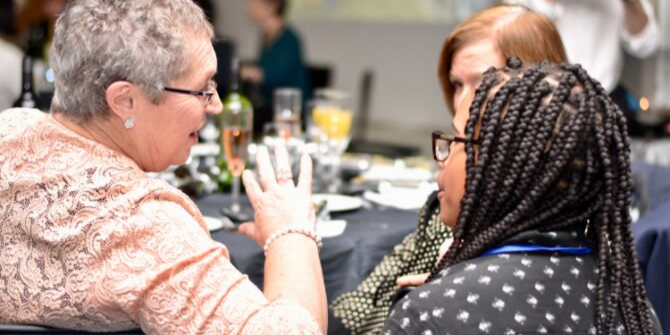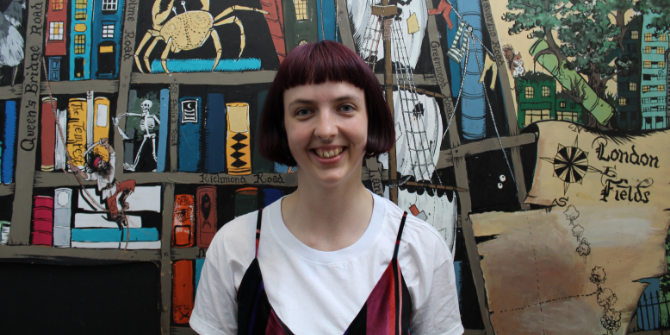People have proactively taken the steps to get involved in something bigger than themselves and in the best possible way. While there are many in the volunteering sector who believe that recent years have seen a decrease in desire to take part, I hope this goes some way to prove otherwise.
However… and there was always going to be a “But…”.
I’ve been working in volunteering in the UK for the past seven years, but it all started in Portugal when I was younger and I still keep an eye open for what’s happening there.
What I’ve seen happening in both countries over the past two weeks is incredible. A variety of organisations have made their resources available so we can all share best practice. Websites and apps have been created to match opportunities with volunteers. Awareness is being raised of the impact this pandemic has had on both individuals and organisations and how we can support each other. I’m sure this is just a small sample of examples.
What worries me, and maybe it’s an unfounded concern, is that some of the best practice and processes that we have all worked so hard to put in place could be going out of the window. However, this is not across the board, as I am still supporting and promoting volunteering roles from organisations which have done their due diligence. That being said, it would be interesting to see if all the ‘new’ websites, apps and opportunities have suitable processes in place to ensure that their volunteers are well looked after.
I am also aware that some reading this might say: “It’s because of an excessive focus on process, procedures and bureaucracy that people have stopped volunteering. We just want to help!”. I recognise that there is some truth to that.
Some could also say: “This is not like any other volunteering opportunity, it’s a short term/one-off situation”. I also recognise that we are going through something unprecedented. However, should this give us permission to disregard some of the ‘fundamentals’ of volunteering management?
I believe that regardless of the (urgent) situation, there are some things that we should always keep in mind.
1 The priority is to help
Our priority is to help others. To help people that are more vulnerable and in need, to help organisations and our health services and also to help volunteers to help each other. In order to do that, we need to ensure that they are safe and that they have the right guidance from the beginning and support throughout. The last thing we want is to put a volunteer at risk by not providing them with enough information or training, by sharing too much information about other volunteers and beneficiaries without any concerns for GDPR, or by not having anything in place for them when their volunteering experience ends (including signposting to organisations that might be able to provide mental health support etc.)
2 Intentions do matter
I want to believe that all the websites and Apps that I have recently seen have been put in place because their intention is to make the next few months easier for the different communities. It was with some level of surprise, however, that I saw platforms being created where profit making organisations were taking the opportunity to exploit the good intentions of others and asking for volunteers to do tasks that should (still) be done by a paid member of staff. Also, some individuals who might just “not feel like” getting out of the house to go shopping are using well-intentioned volunteers to do their regular chores, which is not what the volunteer has signed up to do. So, the question is… are we all doing our bit to ensure that the organisations and opportunities are actually having the impact they’re supposed to?
3 We are all human
It is normal at the present time to think about the more vulnerable people and how we might be able to help in any way we can, but it’s also extremely important (and I cannot stress this enough!) to think about the level of support that volunteers might need and how this can affect them. Volunteers are going out to the shops and pharmacies, they are providing phone support to beneficiaries that might be more isolated, they are supporting the national health systems and encountering situations they might have never had to deal with before. Do we have the right level of support available (planned and thought through) for our volunteers, many volunteering for the first time, while they go through this experience?
Previously, we probably saw volunteers supporting others without ‘needing’ or ‘asking’ for support for themselves. But if this is currently still the case… should we completely disregard what we have learnt in the previous decade regarding what we can put in place to support volunteers? Even something “as simple” as guidelines and training before they start and suggestions of organisations, they can contact afterwards in case they need to talk with someone?
We are going through something unprecedented and we are all learning how to live within this new reality. Thinking about this Covid19 volunteering upsurge, I hope it will positively change how people see volunteering, allowing them to understand that we can all do a little bit more for others.
Hopefully, it will also make clear that we, as volunteers, should have the right support before, during and after our volunteering activities.
If you were inspired to volunteer by this blog, check out our other blog on how and where to volunteer to help those affected by COVID-19. LSE students can also find 200+ ongoing opportunities or book a one-to-one with David Coles, the Volunteer Centre Manager via CareerHub. If you want to share your volunteering experience with us, why not write us a blog? Have a scroll through our blog page to read what other students have written and get inspired!





